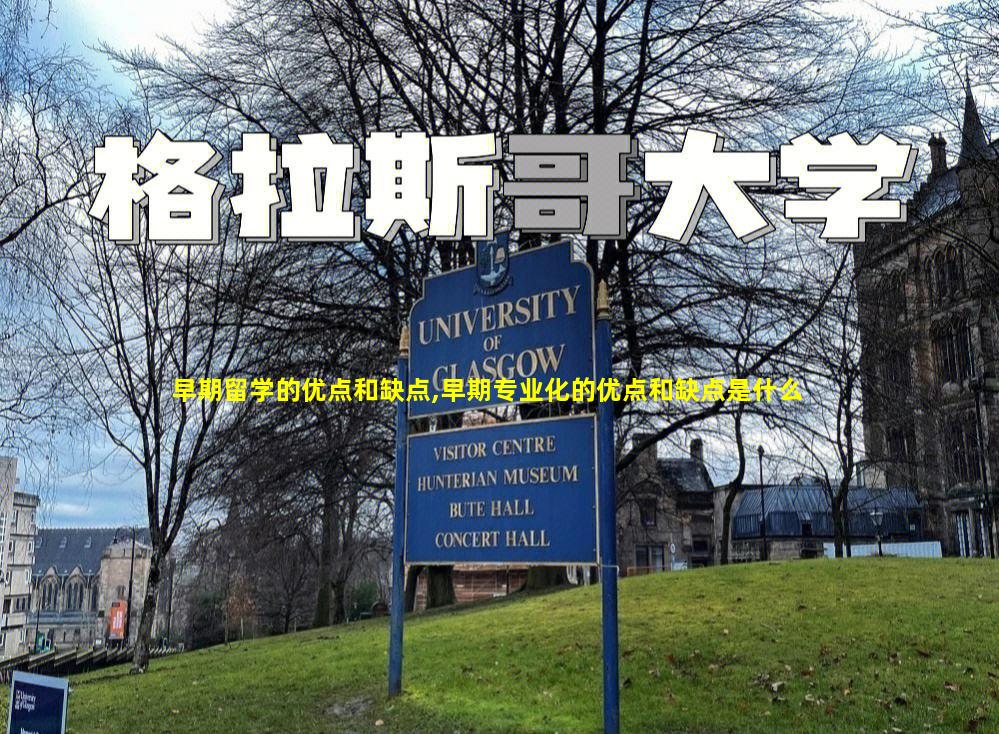 锦泰留学网
锦泰留学网早期留学指的是在儿童或青少年期间参加国际学习和生活经验的活动。早期留学有一些优点和缺点,下面是一些常见的观点。请注意,这些观点可能因个人情况而有所不同。
优点:
1. 语言和文化能力发展:早期留学可以让学生在年轻的时候接触到不同的语言和文化,提高他们的语言技能和文化交流能力。
2. 国际视野拓展:早期留学可以让学生拓宽他们的视野,了解其他国家的政治、经济和社会体系,培养全球化思维。
3. 教育质量提高:一些国家的教育系统可能比本国更先进、优质。早期留学可以让学生接触到更好的教育资源和学习环境。
4. 适应力培养:早期留学可以让学生学会适应新的环境、交朋友和独立生活,提高他们的适应力和社交能力。
缺点:
1. 学业压力增加:早期留学可能需要学生在不同的教育体系之间切换,适应新的学术要求和学习方法,给学生带来一定的学业压力。
2. 家庭分离困难:早期留学可能需要学生离开家庭和朋友长时间生活,对学生的情感和心理造成一定的负担。
3. 文化冲击和适应困难:早期留学可能让学生经历文化冲击和身份认同的问题,需要很长时间去适应新的文化环境。
4. 费用和安全风险:早期留学可能需要家庭承担较高的经济成本,同时也可能面临住宿、健康和安全方面的风险。
早期留学有一些优点和缺点,需要家长和学生共同权衡和考虑个人需求和情况。
早期专业化可以带来以下优点和缺点:
优点:
1. 提前获得专业知识:早期专业化可以让个人在特定领域早日获得专业知识和技能,有利于在该领域快速成长和发展。
2. 竞争优势:通过早期专业化,个人可以在特定领域中获得竞争优势,因为他们将有更多时间和机会在该领域中进行学习和实践,积累经验和建立声誉。
3. 职业发展加速:早期专业化可以加速职业发展,因为个人在特定领域中的专业知识和技能将比其他人更加深入和专精。
缺点:
1. 缺乏广度:早期专业化可能导致个人在其他领域的知识和技能相对较少,这可能限制了个人的职业发展路径和机会。
2. 知识更新速度慢:某些领域的知识和技术可能会迅速发展和变化,早期专业化可能导致个人无法及时跟进并更新自己的知识。
3. 全面发展的机会有限:早期专业化可能将个人限制在特定的领域中,缺乏接触和经验其他领域的机会,这可能限制个人的全面发展。
Advantages and Disadvantages of Studying Abroad
Studying abroad has become increasingly popular in recent years. It offers numerous advantages for students, but also comes with its own set of challenges. Below are the advantages and disadvantages of studying abroad.
Advantages:
1. Cultural immersion: Studying abroad provides students with the opportunity to immerse themselves in a different culture. This allows them to gain a deeper understanding of different traditions, customs, and perspectives.
2. Enhanced language skills: Living in a foreign country allows students to improve their language skills by practicing and communicating in the local language on a daily basis.
3. Personal growth: Studying abroad promotes personal growth and independence. Living in a foreign environment can help develop important life skills such as adaptability, problem-solving, and self-reliance.
4. Global perspective: Immersion in a different culture offers students a global perspective, allowing them to see things from a broader viewpoint. This can be a valuable asset in a globalized world.
5. Expanded career opportunities: Studying abroad can enhance job prospects, as employers often value the international experience and cross-cultural communication skills gained during an overseas education.
Disadvantages:
1. Financial costs: Studying abroad can be expensive, as it involves additional costs such as tuition fees, accommodation, travel expenses, and living costs. This can be a barrier for students from lower-income backgrounds.
2. Homesickness: Being away from home and loved ones can lead to feelings of homesickness and loneliness. Adjusting to a new environment, culture, and making new friends can be challenging for some students.
3. Education system differences: The education system in a foreign country may differ from the student's home country, which can pose challenges in terms of curriculum, teaching methods, and assessment procedures.
4. Language barrier: Students may face difficulties in adapting to a new language, especially in the initial phase. This can make it hard to fully engage in academic activities and social interactions.
5. Limited support system: Students studying abroad may have limited support from family and friends who are far away. Adjusting to a new culture, dealing with administrative tasks, and any health or personal issues can be more challenging without a familiar support network.
In conclusion, studying abroad has numerous advantages such as cultural immersion and personal growth. However, it also presents challenges such as additional costs and homesickness. Students considering studying abroad should carefully weigh both the pros and cons before making a decision.
留学国外有以下优点:
1. 学术环境优越:国外大学拥有先进的教学设施和高水平的教学资源,可以接触到更先进的学术知识和技术。
2. 语言能力提升:留学国外可以提升语言能力,特别是英语。通过与本地人交流和学习,能够迅速提高口语和听力能力。
3. 丰富的文化体验:可以亲身体验不同国家的文化、历史和习俗,开阔眼界,增加跨文化交流的能力。
4. 建立国际人脉:留学过程中可以结识来自不同国家的同学和教授,建立国际人脉,对未来的职业发展和合作机会有很大的帮助。
但是,留学国外也存在一些缺点:

1. 高昂的费用:留学国外的费用通常很高,包括学费、生活费、签证费等。这对于一些家庭来说可能是负担不起的。
2. 孤独感和适应困难:留学国外可能会面临孤独感和适应困难。离开家人和朋友,面对新的环境、文化和语言,有时可能会感到孤独和困惑。
3. 文化差异和歧视:留学国外也可能面临文化差异和歧视。不同国家有不同的价值观、行为习惯和社会制度,适应这些差异可能需要一定的时间和努力。
4. 入职竞争:留学国外并不能保证就业机会。毕业后可能需要和本地学生竞争就业,面临不同国家的工作签证等问题。
以上是一些留学国外的优点和缺点,具体的情况还会受到个人的目标、经济状况和适应能力等因素的影响。